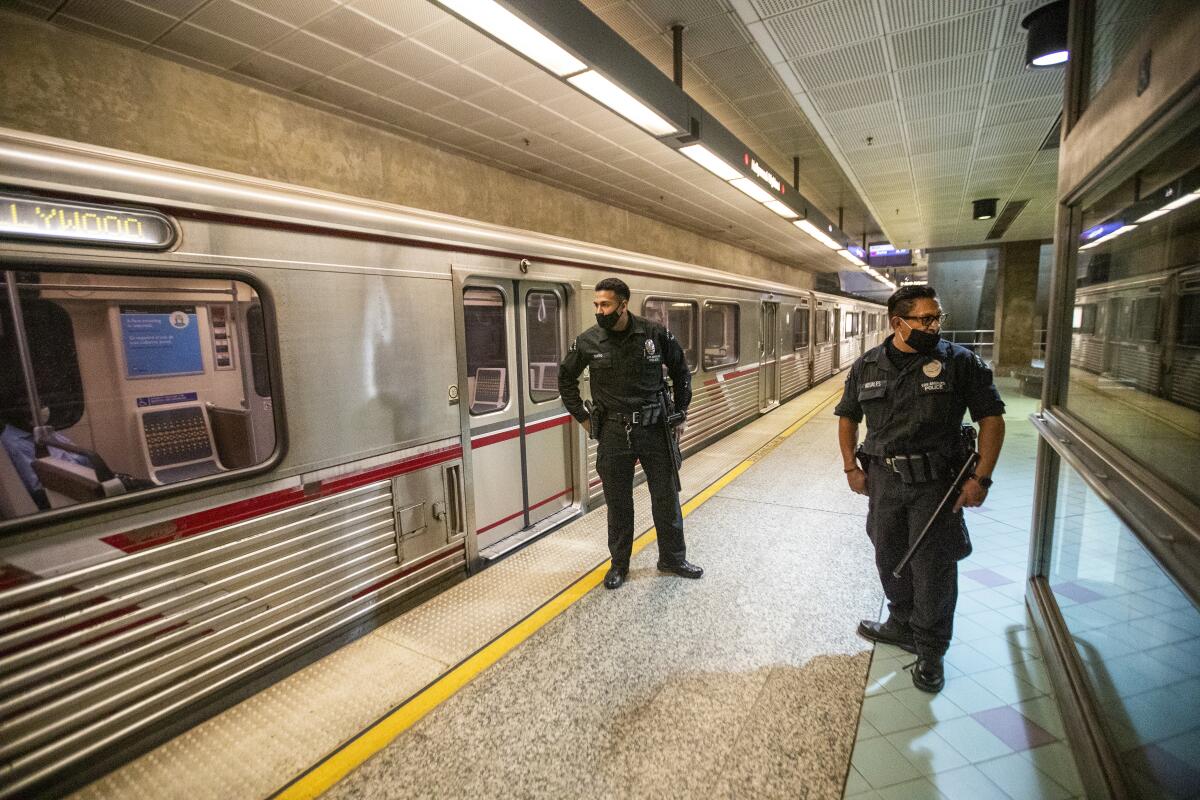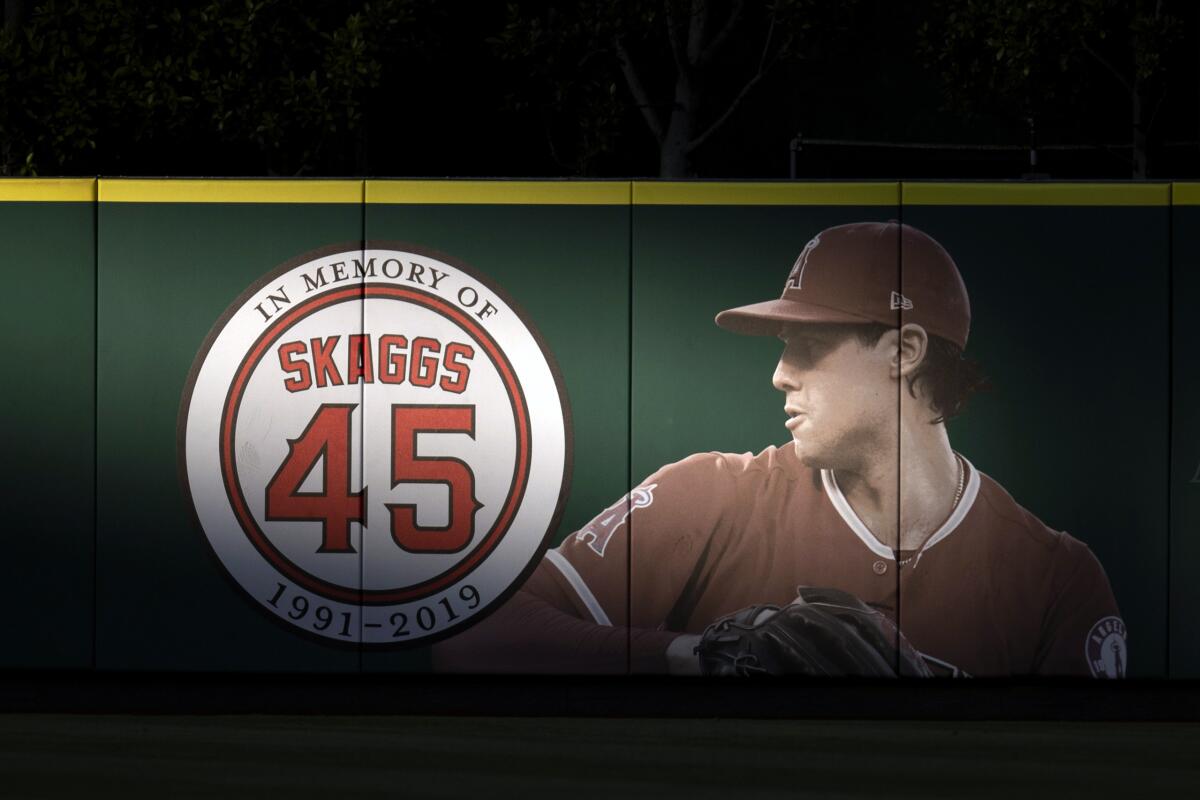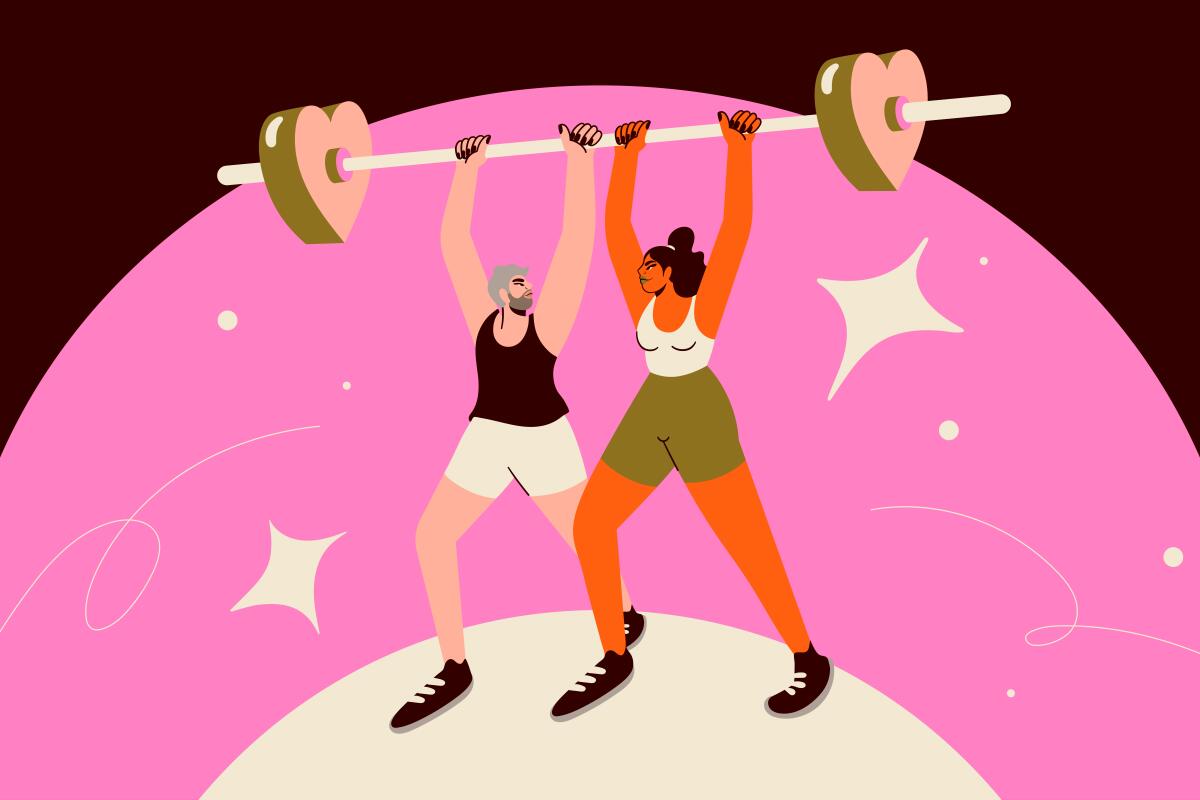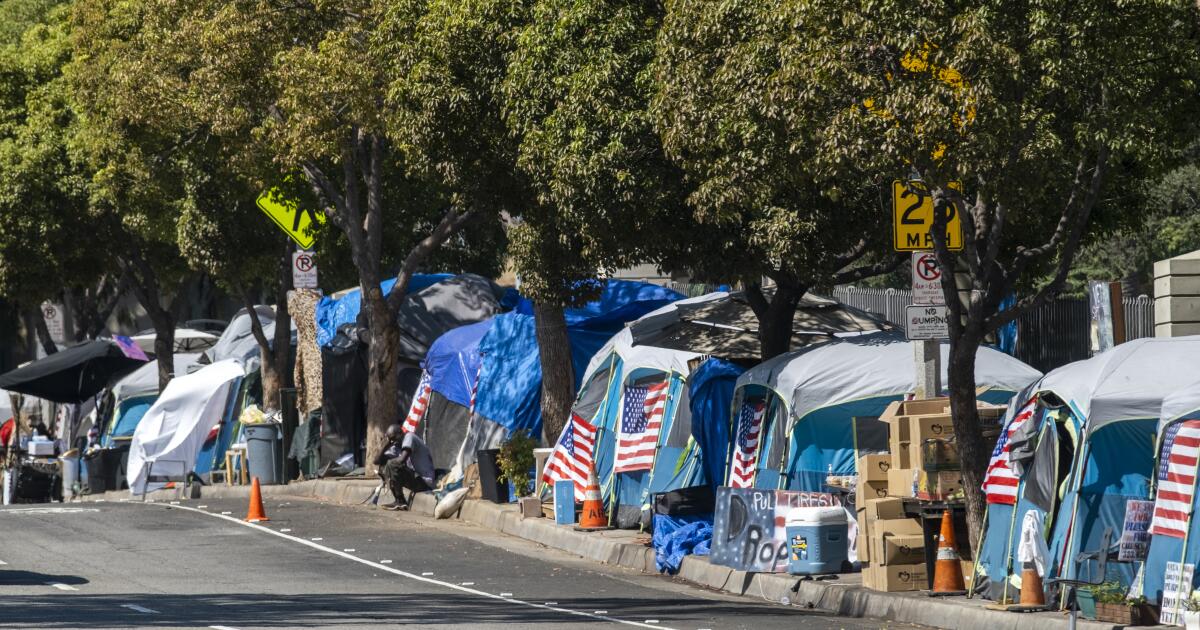Good morning, and welcome to the Essential California newsletter. It’s Sunday, June 30. I’m your host, Andrew J. Campa. Here’s what you need to know to start your weekend:
Justices say it’s not ‘cruel and unusual’ to stop homeless from street sleeping
The Supreme Court ruled Friday that cities may enforce laws restricting homeless encampments on sidewalks and other public property in a 6-3 decision that split down liberal and conservative lines.
The justices disagreed with San Francisco’s 9th Circuit Court and ruled it is not “cruel and unusual” punishment for city officials to ban the homeless from sleeping on the streets or in parks.
“Homelessness is complex,” Justice Neil M. Gorsuch wrote for the court. “Its causes are many. So may be the public policy responses required to address it.”
Gorsuch said the 8th Amendment, which centers on cruel and unusual punishments, “does not authorize federal judges to wrest those rights and responsibilities from the American people and in their place dictate this nation’s homelessness policy.”
Three liberal justices dissented.
“For people with no access to shelter, that punishes them for being homeless,” Justice Sonia Sotomayor said. “That is unconscionable and unconstitutional. Punishing people for their status is ‘cruel and unusual’ under the 8th Amendment.”
While nothing in the decision requires cities to take stronger enforcement action against homeless people, it will free some of them to do so.
Is it really up to local governments to decide how to deal with this?
Yes.
Gorsuch wrote that people will disagree over which policy responses are best.
“At bottom, the question this case presents is whether the 8th Amendment grants federal judges primary responsibility for assessing those causes and devising those responses,” Gorsuch said. “It does not.”
Gov. Gavin Newsom said in a statement that the ruling provides state and local officials “the definitive authority to implement and enforce policies to clear unsafe encampments from our streets.”
What does City Hall think?
Los Angeles Mayor Karen Bass slammed the Supreme Court’s ruling, calling it “disappointing” and arguing it should not be used to jail homeless residents or drive them from city to city.
Bass, who declared an emergency on homelessness in December 2022, signaled the ruling will not alter her approach to the crisis. She has focused heavily on moving unhoused Angelenos out of encampments and into hotels, motels and other forms of temporary housing.
“The only way to address this crisis is to bring people indoors with housing and supportive services,” she said. “In the city of Los Angeles, we will continue leading with this approach, which helped move thousands more Angelenos inside last year than the year before.”
What are officials from other cities saying?
Lancaster Mayor R. Rex Parris said the high court “finally made a good ruling” and said the city plans to “be much more aggressive.” Parris added he’s not concerned about “appropriate encampments,” but is concerned about those “who camp next to neighborhoods, next to shopping centers.”
“We’re going to be moving them really fast,” he said. He added that the city has a “state-of-the-art homeless shelter” with beds available.
Parris agreed with Gorsuch that the decision should be in the hands of city officials, stating, “that’s called democracy.”
In San Diego, one of the cities that urged the Supreme Court to hear the appeal, Mayor Todd Gloria said the ruling “brings much-needed clarity to how the city can enforce our laws against unsafe encampments.”
However, he added that “it will not change our strategy on homelessness.”
“It is clear that the 1,000 new shelter opportunities we’ve added in the past three years is working to reduce street homelessness, and we intend to continue to pursue additional beds,” he said in a statement.
San Francisco Mayor London Breed, who had welcomed the Supreme Court’s review of the case in her broader effort over the last year to crack down on crime and homelessness in the city, said the decision “will help cities like San Francisco manage our public spaces more effectively and efficiently.”
Breed has long lamented that, despite the city funneling more resources into temporary housing and treatment services, those on the streets often refuse shelter.
“San Francisco has made significant investments in shelter and housing, and we will continue to lead with offers of services from our hard-working city employees,” Breed said in a prepared statement. “But too often these offers are rejected, and we need to be able to enforce our laws, especially to prevent long-term encampments.”
Check out reporter David G. Savage’s article for more information on the decision, while reporters Brittny Mejia, David Zahniser and Hannah Wiley provide analysis.
The week’s biggest stories

(Allen J. Schaben / Los Angeles Times)
Travel and transportation
Crime, courts and policing
National and local politics
Environment and nature
Entertainment and literature
Sports and Olympics
Finance and insurance
More big stories
Get unlimited access to the Los Angeles Times. Subscribe here.
Column One
Column One is The Times’ home for narrative and longform journalism. Here’s a great piece from this week:

(Kyusung Gong / Associated Press)
Not many victims of the opioid crisis in America make national headlines. Tyler Skaggs was different. The 27-year-old was a professional athlete, a pitcher for the Angels, wealthy and famous. On a road trip with the team, he was found in his hotel room. He had choked on his own vomit after consuming a mix of alcohol, oxycodone and fentanyl.
More great reads
How can we make this newsletter more useful? Send comments to essentialcalifornia@latimes.com.
For your weekend

(Illustration by Lindsey Made This; Photo by Willy Sanjuan / Invision / AP)
Going out
Staying in
L.A. Affairs
Get wrapped up in tantalizing stories about dating, relationships and marriage.

(Camila Rosa / For The Times)
After moving from the barbecue to the bars with friends, he asked me out on our first official date, marking the beginning of summer. At Laurel Tavern in Studio City, where I’m sure many first dates begin, Dave and I exchanged laughs and stories on a majestic June evening as friends gathered for happy hour and families celebrated their loved ones’ college graduation. The drinks were flowing, and we — two acquaintances — soon became love interests who had second and third dates.

